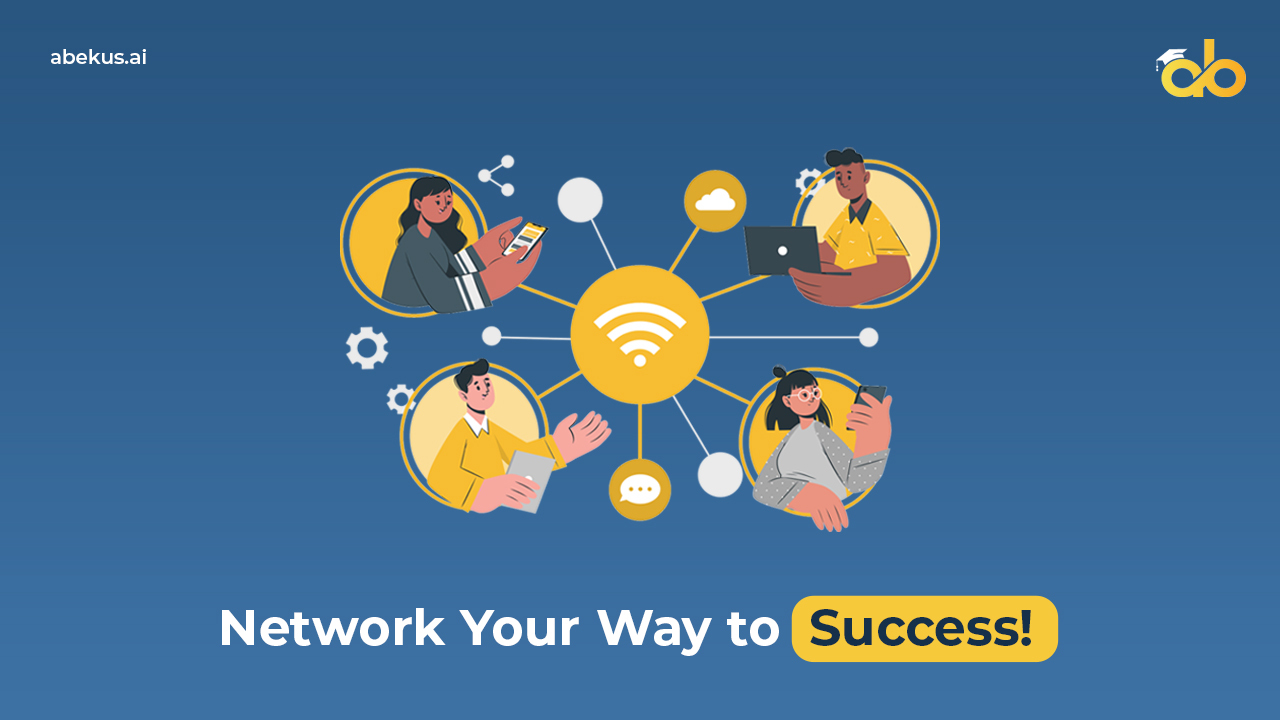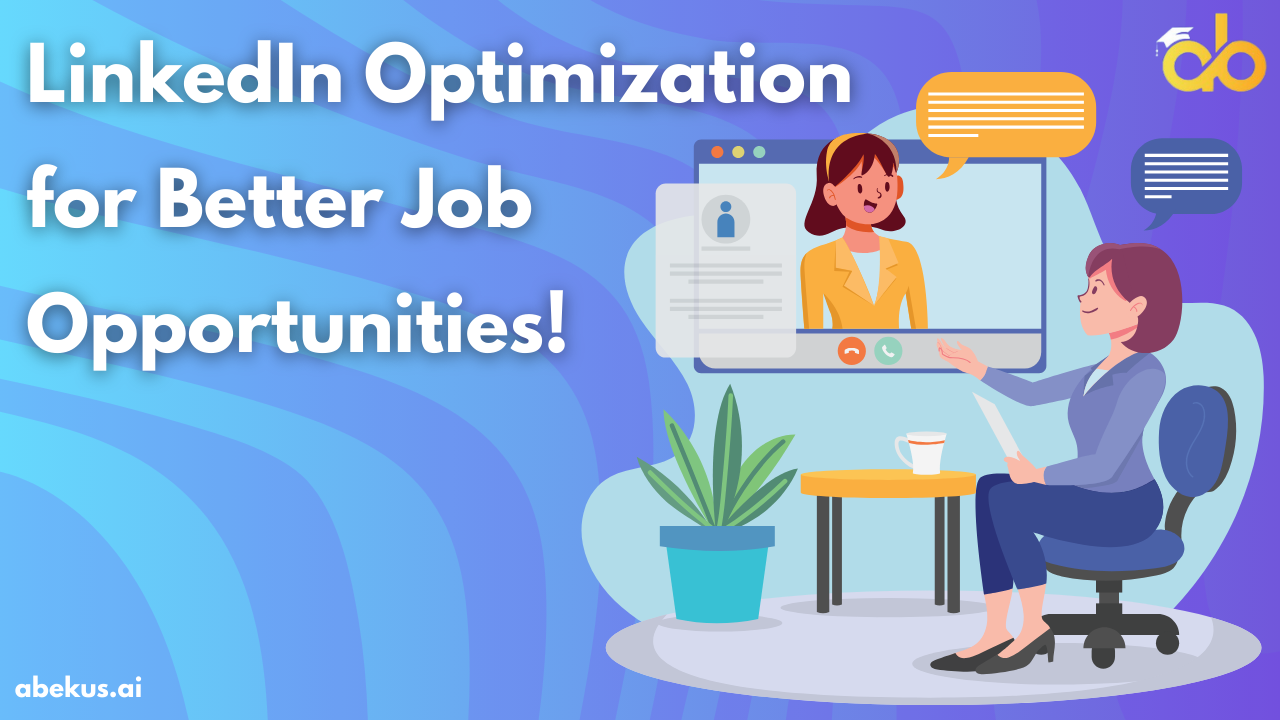How To Write A Cover Letter For Landing A Job: 8 Step Guide To Success

Let’s be honest—writing a cover letter feels tedious. Most job seekers (including you) treat it as a formality, copy-pasting a generic template, tweaking a few details, and hitting send. The result? No callbacks. No interviews. Just wasted time and effort. While your resume lists your skills and experience, your cover letter connects the dots, proving why you’re the perfect fit for the job, which makes it super-important. If you’re tired of writing cover letters that go unnoticed, we’ve got you covered. This step-by-step guide will give you a foolproof way to craft a standout cover letter that grabs recruiters’ attention. You’ll learn: What a cover letter is and why it matters The key elements of an effective cover letter Cover letter examples to write each element perfectly Let’s dive in and make your cover letter work for you—not against you. Cover Letter: Meaning and Purpose The history of cover letters begins somewhere in the 1930s when the word ‘cover letter’ came into use. Then, a cover letter was referred to a document that a bank would attach to support some data and bring clarity to the overall picture. It used to state what was not visibly written in that data. Fast-forward, the first use of a ‘cover letter’ for employment reasons came on September 23, 1956. It was a classified ad for ‘Dutch Boy Paints’ that asked people to send a cover letter along with a resume. Source Where a Resume tells about your grades, qualifications, experience, etc., a cover letter answers the why. It connects the dots. Using a great cover letter, you can tell why you are the best fit for the spot. Simply put, a well-written cover letter sets you apart by telling how you are different and valuable. Understanding the Anatomy: The Cover Letter Format A strong cover letter isn’t just a block of text—it follows a clear structure that makes your case compelling. Here’s what every impactful cover letter should include: Header with Contact Information Your cover letter should start with your name, email, phone number, and LinkedIn profile (if applicable). Below that, include the recruiter’s or hiring manager’s name, company name, and address. Greeting That Feels Personal Avoid generic openers like “To Whom It May Concern.” Instead, address the hiring manager by name (a quick LinkedIn search can help). Attention-Grabbing Opening Paragraph Start strong by mentioning the job title you’re applying for and a compelling reason why you’re excited about the role. You can also include a quick achievement that makes you stand out. Body: Sell Yourself with Specifics Use 1-2 paragraphs to highlight your most relevant skills and experiences. Don’t just repeat your resume—explain how your background aligns with the company’s needs. Use metrics or examples to prove your impact. Here lies a trick: show your knowledge about the company by citing a recent project or achievement and relate this back to your own experiences or goals. Closing That Seals the Deal Reaffirm your enthusiasm for the role and include a call to action. Something like: “I’d love the opportunity to discuss how my skills align with your needs. Let’s set up a time to chat!” Professional Sign-Off End with “Best regards,” or “Sincerely,” followed by your name. Following this structure ensures your cover letter is clear, professional, and persuasive. Now, let’s break down exactly how to write each section for maximum impact. Source Now, let’s learn how to make it more personalized and get the results you want from it. Personalizing Your Cover Letter A generic cover letter is the fastest way to get ignored. Hiring managers can spot a template from a mile away, and nothing signals “I don’t really care” more than a copy-pasted document. If you want your cover letter to work, it needs to feel like it was written just for the job you’re applying to. So, how do you make your cover letter stand out? You personalize it. Show the employer that you’re not just interested in any job, but their job. AI-powered tools like Abekus.ai can analyze job descriptions and company insights to help you craft a more personalized, data-driven cover letter that resonates with recruiters. Here’s how you can do it : 1. Research the Company Before you even start writing, travel seas and mountains to understand the company. There are a few things you can do: Visit their website, Read their mission statement, Check their latest news or projects. What are their values? What challenges are they facing? What’s their company culture like? The goal here is to gather insights that will allow you to frame your cover letter in a way that speaks directly to the company’s needs and vision. ✅ Example: A sentence like “I was particularly impressed by your recent sustainability initiative, and I’d love to contribute my skills in supply chain management to further that effort” can show that you’ve done your homework. 2. Align Your Skills with Their Needs At this point, you know exactly what they’re looking for—so use that information to your advantage. Don’t waste the limited space by repeating what’s on your resume. Instead, highlight the specific skills and experiences that directly align with the job description. For example, if a company is looking for a project manager with strong leadership skills, don’t just say, “I have leadership experience.” ✅Instead, demonstrate it: “In my previous role, I led a cross-functional team of 10 members to complete a high-impact project three weeks ahead of schedule, improving operational efficiency by 20%.” This approach makes it clear that you don’t just have the skills—they’ve been tested and proven in real situations. Storytelling can be very useful here. It will convey the whole thing well and show your communication skills. ✅Pro Tip: You can refine your skills, take tests and get scores for your proficiency at Abekus.ai. You can even use these scores to demonstrate your efficiency and understanding of the subject in your cover letter. 3. Use the Hiring Manager’s Name We have already discussed
Personal Branding 101: How to Land Your Dream Job Faster in 2025

Imagine walking into a room where hundreds of candidates are vying for the same job. How do you make sure the recruiter remembers you? The secret isn’t just in your resume—it’s in your personal brand. Just like you instinctively pick Coke or Pepsi over lesser-known brands, hiring managers gravitate toward candidates with a strong, memorable presence. And in today’s digital world, your online footprint plays a huge role. In fact, nearly 80% of businesses have rejected candidates based on their social media content. So, should you start scrubbing your posts? Maybe. But personal branding is about more than just playing it safe. It’s about strategically shaping your identity to stand out in a crowded job market. In this guide, we’ll break down everything you need to know: what personal branding is, why it’s crucial, how to build yours, and expert tips to get noticed. Let’s dive in! What Is Personal Branding (And Why Should You Care)? Think about your workplace or friend circle. There’s always that one person you go to for tech help, career advice, or fixing last-minute issues. Why? Because they’ve built a reputation—you trust them to get the job done. Now, imagine recruiters and hiring managers looking at hundreds of candidates. How do they know who stands out? That’s where personal branding comes in. At its core, personal branding is how you present yourself—both online and offline. It’s what people associate with your name. Are you a problem-solver? The creative genius? The expert in your field? Your brand isn’t just your resume; it’s the stories you tell, the skills you showcase, and the impression you leave on others. Source Here’s what shapes your personal brand: ✅ Your skills – both soft (communication, leadership) and hard (technical expertise) ✅ Your expertise – what sets you apart in your industry ✅ Your values & passion – what drives you professionally ✅ Your online presence – LinkedIn, personal website, and even social media ✅ Your network – the connections that vouch for your credibility 💡 Here’s the truth: Everyone already has a personal brand. The question is—are you actively shaping it or letting it be defined for you? As a job seeker, your personal brand can be the difference between getting noticed or getting ignored. So, why should you start building yours today? Let’s break it down. 👇 ✅ Boosting Visibility – Social media platforms (especially LinkedIn) prioritize profiles with strong branding, making you easier to discover. ✅ Building Credibility – A strong brand makes you trustworthy and positions you as an authority in your field. ✅ Expanding Your Network – Thought leaders attract meaningful connections that bring career opportunities. ✅ Advancing Your Career – More networking = more opportunities, whether it’s a new job, mentorship, or industry recognition. In short, personal branding isn’t optional anymore—it’s your competitive edge in today’s job market. 5 Actionable Strategies to Build a Personal Brand That Roars Creating a strong personal brand isn’t just about looking good online—it’s about positioning yourself as the best choice for the job you want. Here’s how to make it happen: 1 – Identify and Showcase Your Strengths Recruiters want to know what sets you apart. The more precise you are about your strengths, the easier it is to prove your value to potential employers. How to Identify Your Strengths: ✔ Reflect on past achievements – Quantify your impact (e.g., “Increased social media engagement by 40% in six months”). ✔ Showcase real work – Share projects, case studies, and leadership experiences that highlight your expertise. ✔ Collect testimonials – Ask colleagues or managers for LinkedIn recommendations to validate your skills. Another way to identify your strengths is to take the Abekus Skill Test, evaluate your knowledge, and practice the skills you want to master. Where to Showcase Your Strengths: 🔹 LinkedIn Profile – Optimize your summary with measurable accomplishments. 🔹 Portfolio Website – Display your best work samples and success stories. 🔹 Email Signature – Add a tagline that reinforces your expertise. 🔹 Social Media Posts – Share insights, experiences, and industry trends to establish thought leadership. 💡 Pro Tip: Integrate your personal brand into job applications. Use storytelling in your resume and cover letter to align your unique skills with the company’s needs. Keep your resume ATS-friendly to increase your chances of getting shortlisted. 🚀 Next Up: Why storytelling is the key to making your brand memorable. Stay tuned! 2 – Tell Your Story (And Make It Stick) Storytelling isn’t just a soft skill—it’s a powerful tool that makes your personal brand unforgettable. A well-crafted career story humanizes your brand, builds trust, and makes recruiters remember you. How to Use Storytelling for Personal Branding: ✅ Keep It Short & Powerful – Craft a 3-5 sentence career story that covers: Where you started A challenge you faced How you overcame it Where you are now ✅ Set the Right Tone – Your tone shapes perception. Be authentic, confident, and professional while avoiding robotic corporate jargon. ✅ Showcase What Drives You – Talk about why you entered your field and what keeps you motivated today. ✅ Make It Relatable – Share real experiences to create an emotional connection. For example: “I started as a self-taught developer, debugging my first code at 2 AM. Today, I lead projects that impact thousands. Every bug I fix reminds me why I love what I do.” Where to Use Storytelling? 🔹 LinkedIn “About” Section – Craft an engaging summary that makes recruiters stop scrolling. 🔹 Blog Posts & Articles – Share your career lessons, industry insights, and growth journey. 🔹 Social Media Comments – Thoughtful comments help you stand out as a voice in your industry. Engaging on LinkedIn not only adds to your brand but it even helps you optimize your LinkedIn profile. 💡 Pro Tip: Create a personal brand kit—consistent colors, fonts, logos, or a signature content style. Just like Coca-Cola’s branding is instantly recognizable, your brand kit shx`ould make your content visually and tonally distinct across platforms. 🚀
The Importance of Networking for Job Seekers

Humans have been thriving on networking for millennia. And when we speak of the corporate world, the impact and importance of networking take a brilliant peak. Today, missing networking means missing a heap of untouched career opportunities floating out there. A study done by the Federal Reserve Banks of St. Louis revealed that networking Led to faster job landing Offered higher quality jobs Handed improved job satisfaction While applying for positions through traditional means like job boards is still necessary, it’s the connections you build and nurture that can truly unlock doors to career opportunities. In this article, we will explore actionable strategies for building meaningful relationships and maintaining a professional network that truly matters. Networking – What It Really Means! Usually, we think of networking as sending connection requests to as many people as possible, hundreds to thousands. This is where we go wrong. If you are truly looking to grow on the corporate ladder, aim to build genuine, meaningful relationships. This will allow you to connect, learn, and support each other throughout your professional journey. This approach to networking can make a powerful difference. In today’s job market, 70-80% of roles are filled through networking and personal referrals, not formal applications. This “hidden job market” is where networking really proves its worth. If you have an excellent connection network, you may easily get Valuable insider information on job Advice, career guidance, and industry insights Intros to decision-makers Long-term career growth and opportunities Community support during job transitions or career switch Job boards or online listings can’t match this depth. Effective Networking Strategies As a job seeker, you need a blend of strategic planning, genuine engagement, and consistent follow-up. Here’s a comprehensive guide to help you through: 1 – Network with the right mindset People often pre-conceive deceit, self-centeredness, and formality when we speak of corporate strategies. Even though it’s a corporate world, people always act through the core human emotions and tendencies. When networking, always have a ‘We’ mindset. Focus on giving, not just receiving – Your mindset must be of mutual benefit. Think of ways to provide value to others, whether through sharing knowledge, offering insights, or connecting them with someone in your network. Set clear networking goals – Always start with defined objectives. This will save you the time you might waste connecting in the wrong areas. Are you looking to gain insight into a particular field? Do you want to meet potential mentors? Is it simply about uncovering hidden job opportunities? Whatever it is, setting specific goals can guide your networking efforts in the right direction. Your interactions will be more meaningful. 2 – Building connections with like-minded professionals Don’t connect with everyone out there. Instead, look for individuals with shared interests, similar career paths, valuable industry knowledge, relevant past experience, etc. These connections will more likely offer relevant opportunities, advice, and introductions to you. Industry-relevant groups – Considering the internet is highly saturated, chances of finding professional organizations, industry groups, or communities relevant to your field are high. A simple Google search will reveal to you numerous relevant networks. Many groups host regular meetups or webinars that allow for genuine interaction, whether online or offline. A few notable examples include groups like Society for Information Management for IT professionals American Marketing Association for marketing experts Local tech communities such as AgileIndy If you are actively searching for jobs, joining job seeker networks or peer transition networks can be highly beneficial. From here, you may get job leads, resume advice, and even interview tips. 3 – Offline Networking – making connections face-to-face Yes, the world has metamorphosed into a digital giant. But it does not mean that there is no potential outside the screen. Thousands of industry events happen every month. Conferences, workshops, seminars, all these areas are prime places to meet professionals in your field. However, when you start a conversation, be intentional. Tip – Have a few conversation starters ready and make an effort to introduce yourself to key people. Seek out small networking meetups – If you are starting new or have some time, try joining small networking meetups. They’ll be more relaxed and conversational. Events like “Happy Hours” or local meetups are good examples. Do some research and look for local groups relevant to your industry. Now, don’t think it’s all done after you leave the meeting room. It’s a BIG NO! Always follow up with people you meet offline. A short, personalized email or LinkedIn message can go a long way in cementing the connection and keeping you memorable. 4 – Online networking – leveraging LinkedIn and other platforms Almost all companies and employees today have a good digital presence. This means a giant networking opportunity. And of all these opportunities, LinkedIn provides the biggest one. Optimize your LinkedIn profile – LinkedIn is the biggest B2B platform in the world. Data suggests that it now helps 1 billion professionals make their mark in the world. This means thousands of opportunities. However, to harness this well, you must ensure your LinkedIn profile is polished. It must be complete and targeted to your career goals. LinkedIn optimization targets areas anywhere from professional photos to compelling headlines, well-written summaries, etc. This will help you make a strong first impression. Engage with content – Look for content posted by those in your industry – like, comment on, share, create posts – do everything that resonates with you and your target network. Engaging with content shows that you’re active and interested. This can help you attract like-minded connections. Use LinkedIn’s features to your advantage – LinkedIn offers many tools such as ‘People You May Know’, ‘suggested groups’, etc. These tools are extremely helpful, especially when it comes to expanding the network. Also, joining LinkedIn groups and actively participating in discussions will provide you with increased visibility. As a result, you will gradually be seen as an expert in your industry. Explore other networking platforms – While LinkedIn is ideal for professional networking, platforms
Top 5 Job Search Tools Every Job Seeker Should Use in 2024

The job market is exceptionally tight at the moment, enough to make anyone clench their jaw. A recent study reveals that applications are spiking four times faster than job openings. This sweat-inducing competition presents huge challenges for anyone trying to stand out in the crowd. The modern solution to this modern problem? Having the right tools to make the process easier and more effective. From advanced AI platforms that tailor job matches to interactive interview prep tools, the right resources can simplify the hunt save time and improve your chances of success Here’s a look at five essential tools every job seeker should have in their toolkit to navigate today’s job search with confidence and ease. 1 – For Upskilling – LinkedIn Learning & Coursera The best way to rise higher is to have enough fuel and power in your engine. In the job market, this means upskilling yourself. A new study suggests that half of today’s skills will be obsolete in two years. As the market is shifting, you must upskill yourself. Scan the job descriptions of the job posts you are after. Once you find the skills you must have but currently lack, upskill yourself. Take online courses, get certified, and flaunt those certificates on your resume and job profiles. One excellent online learning portal to help you upskill is LinkedIn Learning. LinkedIn Learning Source LinkedIn Learning has been a game-changer for people looking to upskill. Currently, LinkedIn Learning offers over 5,000 courses. It covers almost everything from business and tech skills to creative know-how. All these courses are taught by experts in an easy-to-understand way. But what makes LinkedIn Learning a top-notch platform? Its direct connection and impact on your LinkedIn profile. Every time you’ll finish a course, you can add the certificate to your profile. This way, you can easily showcase your new skills right where recruiters and potential employers can see them. And it’s not just a list of courses; LinkedIn Learning actually tailors recommendations to your interests as well. This means that you can see a much more relevant course you might have not known about earlier. The platform also goes beyond just video lessons. Many courses have exercise files and assessments, so you can practice as you learn. There also are transcripts for when you simply want to follow along or review quickly. And here is the icing on the cake – you can download courses to watch offline, which is perfect when you are either commuting or just want to learn without Wi-Fi. LinkedIn Learning – Pros and Cons Pros Cons Over 5,000 courses across various fields Industry experts as instructors Easy integration with LinkedIn profile to showcase skills Personalized course recommendations Additional tools: exercise files, quizzes, transcripts Offline viewing for learning on the go Quality can vary by course Best suited for active LinkedIn users Limited advanced-level courses Another great platform you can rely on to learn new skills is Coursera. Coursera Source If you are looking to advance your education and earn a degree or specialization in a certain area, Coursera should be your choice. It stands out by offering fully accredited online degrees alongside a wide variety of courses and specializations. Having partnerships with top universities and organizations worldwide, Coursera provides an opportunity to earn high-quality education from prestigious institutions—without stepping foot on campus. You’ll find degree and diploma courses from Yale, Google, the University of California, Wesleyan University, and even IIT. What makes Coursera stand out? Globally recognized certificates Professional Quality Content Variety of Learning Options Accredited Degrees Coursera offers both free and paid courses, but its pricing structure can be a bit complex. Always carefully review the options before diving in. Coursera – Pros and Cons Pros Cons High-quality, university-level content. Opportunity to earn a full, accredited degree online. Flexible learning options to suit various learning styles. Offers both free and paid courses. Accredited certificates enhance your career prospects. Pricing structure can be complex, so it’s important to fully understand the costs involved before committing. Some degree programs and certifications may require a significant investment of time and money. 2 – For Analyzing Resume – Abekus X-Ray Ever felt like you’re sending out countless job applications but getting little to no response? This is a common experience for many job seekers. It often comes down to one key factor: the resume game has completely changed – 180°. ATS has come into the picture. ATS, or Application Tracking System is a tool many companies use to scan resumes and filter applicants before a hiring manager ever sees them. It simply scans thousands of resumes, filters them based on the criteria set by the recruiters, and sends further only the chosen ones. Because It automatically screens resumes for keywords, formatting, and relevant experience, not having it will stop your resume’s journey immediately. Source Abekus X-Ray is an AI-powered resume analyzer that will scan your resume and tell if it has that edge and vitality to help you sail to the interview round. Its multi-step analysis helps a resume stand out in the crowded job market. Here’s its multi-dimensional approach – Content & relevance – It will tell if your resume contains content relevant to the job you are applying for or not. Any extraneous thing, even though a part of your achievement or past experience, will be highlighted. Keyword Optimization – As we know ATS looks for keywords, and X-Ray will tell if your resume has those keywords or not. Grammar & Language – Bad grammar is a big no – Did we just put you off here? The same happens when a recruiter sees your resume with flaws in it. Skills Highlights – Abekus X-Ray’s analysis will also help you highlight your core skills and strengths in a glimpse. Areas for Improvement – If your resume’s summary, structure, tone, or anything needs a brush-up, Abekus will tell. Missing Skills – By comparing your resume with the job description, it will spot any critical skills that
10 Ways to LinkedIn Optimization: How to Enhance Your Profile for Better Job Opportunities

Let’s be honest – at present, LinkedIn is one of the best professional networking platforms out there. It now proudly helps 1 billion members maintain a professional digital profile. But most of us don’t utilize its full potential. Around 61 million people search and apply for jobs on LinkedIn each week. They log in, search, apply, and await the recruiter’s response. It’s good, but not good enough. It’s time-consuming. What if there was a simple way to get more calls from recruiters? What if you could make it easy for them to find you on LinkedIn? The answer lies in ‘Optimizing Your LinkedIn Profile. Let’s see how you can optimize your LinkedIn profile and get the best out of it. Why to Optimize Your LinkedIn Profile? Optimization is the new buzzword in the digital world. Optimizing simply means rewriting or rearranging your information to help social media platforms understand and channel your account in the right areas. In terms of the digital social space, you optimize a website, productivity, brand, social media, cash flows, and LinkedIn profile. When you optimize your LinkedIn profile, you help the LinkedIn algorithm know who you are, what you do, and what you excel at. The better your profile is optimized, the higher it will rank when someone searches for a term. Here is an example – After optimization, your previous casual headline ‘open for opportunities’ could be changed to “Digital Marketing Strategist | Growth-Focused | Proven Results.” This more targeted headline uses relevant keywords and highlights the professional’s expertise. So when some recruiter searches for a marketing strategist, your profile might show up. Here are a few reasons why you must optimize your LinkedIn profile: Helps you rank higher in recruiter’s searches Adds to your brand and credibility Allows you to create networking with relevant professionals Provides expert insight into your professional field The professional benefits are numerous. So, let’s learn how to optimize your LinkedIn profile and get better job opportunities. LinkedIn Optimization – 10 Areas to Target In Your Profile for Maximum Results LinkedIn keeps on changing its algorithm (the way it works). What might have been a brilliant approach yesterday could cost you today. The solution? Stay updated. Here is an updated list of 10 areas that could help you harness maximum results out of your professional LinkedIn presence: 1 – Profile Picture A LinkedIn profile picture is your first impression on other professionals over LinkedIn. Ignore it, and you’ll push your growth down the dump yard. I once received a connection request from a very professional-looking profile. I accepted the request, thinking it was a B2B professional. But to my surprise, they recently passed out of college and had good knowledge of LinkedIn marketing. Needless to say, her profile picture helped her get noticed faster. So, what should your LinkedIn profile picture be like? Source Because LinkedIn is a professional space, going way too casual can repel your potential prospects. Here are a few tips to have that million-dollar LinkedIn profile picture: Long-shot will kill. So, have a close-up shot with your face owning 60% of the space. Smile. It takes nothing and gives everything. Wear clothes that you’d want people to see in if you were a boss Keep the background in your profile picture clean and contrasting Right dimensions of LinkedIn profile picture: A squared image of 400×400 pixels. 2 – Background Picture Just as YouTube offers a banner image, LinkedIn offers a background image. When you don’t use a background image, LinkedIn shows a grey background instead. This will instantly kill your profile and cost you a dull death. Pro Tip – Use the background image as a creative business card. Source A LinkedIn background image is among the first few things a profile visitor sees. It can set the right tone. Here is how to use it: Tell (either visually or through text) what you are and offer Use the right colors that align with your brand Never be bland Use high-quality images Here is an example: If you are a photographer, show the best output of your camera with awards won by it. That’s it. Be creative and thoughtful. You may even be humorous here. For example, if you are an artist, show yourself in a suit, boot, and tie while holding a palette and a brush. Right dimensions for LinkedIn background image: 1584×396 pixels (4:1 ratio) 3 – Headline A profile headline can do much more than spelling out your job title. Doing a bit of research and blending it with creativity can add badges to your LinkedIn profile optimization. Let’s understand this through seeing some of the best industry examples: Cathy Yules: Helping smart managers keep their employees productive and engaged Gary Vaynerchuk: Chairman – VaynerX, CEO – VaynerMedia & Veefriends, Co-Founder VaynerSports, VCR Group and VaynerWatt Erin Balsa: Content marketing @ Haus of Bold | Writer @ Boldface, a daily email about being bold in B2B | Mom x 3 | American living in the UK Get the point? Here are a few top tips to push your LinkedIn headline game: Be concise, clear, confident, and creative about what you do Be bold and memorable Show credibility and expertise through a brand you work with Remember to use job-relevant skills and keywords Try to break the norms. For example, ask a question about the solution you offer LinkedIn headline character limit: 220 characters on desktop and 240 characters on mobile 4 – About Section Next comes the ‘About’ section, which is right below your profile head section. This area is all about telling your story. But don’t forget to include strong profession-related keywords, just as you do while creating your modern ATS-fit resume. Don’t know how to create an ATS-optimized resume that wins you a job every time? When optimizing LinkedIn’s ‘About’ section, follow these tips: Research for keywords that you feel are relevant to your purpose and profession. You can do this by reading the job description, doing internet
How to Make a Perfect Resume That Clicks Every Time

Your resume is your first appearance before the recruiter, and if you fail to grab attention in your first appearance, your resume will likely get lost in a black hole. You send resumes daily but hardly hear from recruiters and companies. If this happens to you chances are your resume is not speaking up for you. It does not catch the attention of the people who are hiring. To pass the first step, you need a resume that shines. It should highlight your skills and capabilities without bogging down the reader’s attention. Today, we are going to talk about how to create a resume that speaks for you and leaves a lasting impression that gets you past the first stage of the hiring process. How The Resume Game has Shifted 180°! Today, digital space has become the go-to platform for almost all business and personal needs. We can reach hundreds of companies each day with ease. This was not the case earlier. This increased reach means more and more people bombarding HRs with thousands of resumes. No human is capable of handling this much volume. And because this is a problem, technological advancement has provided a solution – ATS. When you apply for a job, your resume first goes through a software called ATS – Application Tracking System. If ATS thinks of a resume as unfit, it gets discarded well before a human ever sees it. How do you align your resume with ATS? We’ll discuss it all in our tips to create a perfect resume that wins you your dream job. Source Before that, here is more to how the resume game has shifted 180°, primarily due to technological advancements and evolving expectations: Digital Dominance – ATS and social media has taken the top seat in the hiring process Keyword Optimization – Not just ATS but your online presence is analyzed for job-specific keywords Visual Appeal – How your resume looks impact how you get perceived by the HR Skill-Based Focus – Soft and hard skills get equal credit Personal Branding – If you can present yourself as an authority figure in your field, your resume will get a push Let’s examine each of these aspects more closely in the next section. Examine your resume with a resume analyzer to determine if it fits into the perfect resume category! 7-Step Guide to Crafting a Perfect Resume When creating an outstanding resume, your aim must be two-fold: Winning over the ATS system Impressing your HR Your resume must excel at both these. 47% of HRs agree that finding quality candidates is a tough task. When HRs look at your resume, they usually ask 3 basic questions: What do you do? How and why do you do this? What are the results? Your aim is to tick mark all these areas and be ready for the moment when your HR asks you, “Walk me through your resume please.” 1 – Picking the Right Format This is the most interesting part of creating a perfect resume. The visual appeal of your resume will be the first thing that will spark your HR’s interest. This means picking the right format that is visually appealing. There are a few options that you can choose from while choosing the right resume structure: Resume Builders Resume Templates Starting from scratch All these have pros and cons, and you must choose what fits you. Resume builders are online software that can come in quite handy in automating the process of organizing your information and eliminating some of the legwork. Canva is a great example of this. Alternatively, you can use a pre-made template that you can download and edit for yourself. You may also simply start with a clean slate to have more control over the formatting and design. This option will surely be time-consuming. However, it will also provide you with a free hand at how you want your resume to be. Common Resume Types Next comes the format of your resume – how do you want it to be structured? Most resumes can be summed up into a few formats. The three most common resume formats include: Chronological Resume – This format is all about listing your experience in chronological order (recent experience coming last in the list). This is the most traditional format. Some people even believe that listing your most recent experience first is the best choice. This is called ‘reverse chronological order.’ If you have a consistent career path with no gaps, it might suit you. Functional Resume – A functional resume prioritizes your skills and accomplishments over your work history. If you are shifting your career or have gaps in your employment, a functional resume might fit. Combination Resume – Most people use the combination resume format because it gives equal value to both experience and skills. These are the basic formats. Today the game is changing and you may even think of taking a creative leap. But make sure you take care of these next steps in creating a perfect resume while leaping over traditional resume formats. Choosing Visual Elements While Making a Resume Format is one aspect of your resume’s visual appeal. Here are other factors to consider so that you don’t make your HRs wince back while looking at your resume: Fonts – Opt for clear and easy-to-read fonts like Arial, Calibri, or Times New Roman. Sans-Serif font style gives an upper hand over Serif when it comes to readability. Layout – Focus on clean and uncluttered layout with consistent margins and line spacing. Single to 1.5 line spacing works best. White Space – White space is vital and adds to the visual appeal. Imagine filling your home with nothing but furnishings. It’ll be noisy. Headings and Subheadings – These will help you organize your information and make it easier to navigate. Bullet Points – Use bullet points, just as we are using here, to list your responsibilities and accomplishments. 2 –
How to Switch Career Paths? Guide to Successful Career Transition

Making a career transition is a pivotal decision for any professional. Whether you’re looking to enter a new industry, pursue a leadership role, or switch to an entirely different field, the process can feel overwhelming. Leaving behind everything you have been working on and looking for something new instills the fear of unknown territories. “How to switch career paths?” “Will I be able to make it?” “What will happen to my family if I fail?” “Is this the right decision?” However, a career shift doesn’t have to be daunting with the right strategies in place. We’ll walk you through the steps to ensure a smooth transition, from assessing your skills and setting goals to networking effectively and adapting to new environments. Ready to take your next big leap? Let’s get started. Seven Steps to Smooth Career Switch Career switch goes far beyond changing your resume and cover letter. It challenges your skills, comfort, and morale. However, it also brings a sense of self-discovery and many new opportunities. When Jeff Bezos decided to quit his high-paying investing job and move into selling books online under Amazon, it was not easy. In an interview, he went on to say, “So it was really a decision I had to make for myself. The framework I found that made the decision incredibly easy was what I called — only a nerd would call – a regret minimisation framework.” When actor Saanand Verma, known for his hilarious tagline “I Like It” in the iconic show “Bhabhiji Ghar Par Hain,” thought of leaving his luxurious corporate life and joining cinema, many frowned upon him. But both decided through a process called: ‘Regret Minimization Framework’ We’ll discuss this later in the article. Now, to help you dodge most people’s mistakes, we’ve simplified the path to a smooth career switch into seven steps. 1 – Start with the ‘Why’ The idea of switching jobs often arises before it’s truly necessary. For example, the sudden advent of AI made many consider their present job security and pushed them to switch There are many reasons to consider a career change, such as: A sudden shift in the market pushes job insecurity into lives Inability to meet financial needs and requirements Finding other industries quite lucrative (especially when money is your final goal) A misalignment of your skills and your present job A craving to try something new and feel purposeful Before making a decision, ask yourself why you want to quit. Understanding your motivation will guide your next steps. Sometimes, it’s only about the wrong boat Sometimes, the reason is not the industry but the current company. Corporate politics, fussy bosses, and bad management can make you feel you are in the wrong place– when it’s really just the wrong boat. Proper research is the key Most often, the right step comes in the form of proper planning and research. I remember being tempted by the ongoing trend in coding and the sheer monetary gain. I made the shift without considering much, only to realize later that tech was not for me. To find your ‘WHY’, find answers to these: Assess your current role Understanding what you like or dislike about your current job helps clarify what you seek in a new role. Reflect on your daily tasks, growth opportunities, work environment, and whether your role aligns with your long-term career aspirations. Identify long-term goals Career changes should be driven by where you want to go, not just by dissatisfaction with your current job. Identify where you want to be in the next 5-10 years. Consider job titles, industries, and the skills required for those roles. Align these goals with your personal values and interests. Analyze the market for volatility Some industries may be growing, while others are shrinking. Understanding market trends ensures you move toward a stable and promising field. Research industries, job demand, and salary trends. Pay attention to technological shifts, like AI or automation, that could impact future job security. Talk to those already doing well in that field Reach out to your LinkedIn connections and attend industry events. Ask about their experiences, what skills are in demand, and how they got started. This can help determine whether the new career path is the right fit for you. 2 – Visualize Your Future Self If you’ve done your proper research, you might have a few career options on your hand. Now, take a step back and visualize yourself in that area. Picture yourself 10 or even 40 years from now—are you enjoying it? Consider everything from work-life balance to your sense of purpose. One helpful tool is the concept of Ikigai, a Japanese philosophy that helps you identify your “reason for being.” It focuses on four key areas: What you love What the world needs What you excel at And what you can get paid for Answer these things and it can help you have a rewarding career switch. The Concept of “Regret Minimization Framework’ When people like Jeff Bezos and Saanand Verma made a strong career switch, they went through a concept called ‘regret minimisation.’ It is about these three things: Project yourself forward: Imagine yourself at 80 years old. Minimise regrets: Consider what you’d regret not doing. Make a decision: Choose the path that minimises future regrets. Will you regret so much not taking this path in the future? If the answer is yes, it is time to move. But answer this with enough information at your hand. In this process, you must find answers to: Where do you want to be in 10 or 20 years, focusing on personal and professional aspects, such as work-life balance, financial goals, and sense of purpose? 3 – Assess Your Skills and Capabilities It’s great to have a passion, but do you have the soft and hard skills to thrive in your new career? This is where self-assessment becomes crucial. Make a list Make a list of your strengths and skills. There are skills
Video game designer – a thriving career option for sure!!

Until a couple of decades ago, most people failed to see video game designing as a viable career. But now, thanks to the fast-growing numbers of video games and their players, the industry has ballooned into a thriving one and has started to pave the way for immense career opportunities. In fact, in the past few years, the salaries of video game developers including that freelancers have grown significantly. Of course, a lot depends on their skill and experience too. This boom in the video gaming industry is because of the overall growth potential in the gaming market – in India and across the globe. Secondly, the industry is being perceived as a major game changer. Also, it is a major cause of demand for better smartphones; cheaper and faster internet quality and easy access. So, now, though we understand that the video gaming industry requires skilled and trained video game developers, there lies a big question as to how one can become a video game developer. If you too are groping in the dark and wondering how to become a video game designer, here we are with all the right answers for you. Before moving ahead let us check out what video game designers do to tap better job prospects, key skills, and more. What do video game designers do? – Design and develop flowcharts, storyboards describing the gameplay, – Write code – Fix glitches or test for bugs – Work on the game’s setting – Create characters, visuals, maps, scenarios, difficulty levels, etc. – Create methods for winning or losing – Create a user interface In simpler terms, video game designers develop concepts into playable games. They could either contribute to the making of the overall product or work on specific sections of a game and coordinate with a team. Qualification & relevant skills Technically speaking, the profession is generally taken up by computing professionals with a degree in software development. Undoubtedly, it is an ideal place to start for it gives critical knowledge and experience in data management, software fundamentals, web development, basic to advanced knowledge of UX and UI, and more. In addition to this, knowledge in the below-given points essentially adds value to video game designing. – Game design engines like Unity 3D, Unreal Engine – Coding languages such as C++ and C#, Python, Java, Kotlin – Advanced problem-solving skills – 3D art creation, modeling, texturing, rigging, animation, etc – Art-based software such as Adobe Photoshop, Illustrator – Analytical skills such as good mathematical reasoning – Ability to use data for qualitative information & designs Apart from these, there are a number of online video gaming courses floated by reputed institutions. Many of these courses include sections such as Unreal Engine 4 Game Development Training, Python Game Development Training with Pygame, HTML5 Apps and Games Training and more. With this, we assure you that the professional growth opportunities for video game designers are plenty. And if you thought that video games were simply entertaining media, it is not so. Rather, the industry is definitely poised for explosive professional growth. If you are someone who has a knack for tech, spends a lot of time playing games, and can think of different gaming plots, weapons and upgrades, you are meant for this industry. So, what are you waiting for? Just get cracking and join a video game developer course today.
5 good reasons to join Mechanical Engineering

Contemplating Mechanical Engineering as a career option in an era where lucrative new career options are sweeping away your peers every second day? Well, then you are on the right page seeking answers to your queries and we will tell you why holding a Mechanical Engineering degree is the right choice for you. But before we move on, let us understand certain aspects of the subject and why you should opt for the subject. Mechanical Engineers are those who know the art of analysing, simplifying, troubleshooting and explaining complicated issues. They know why and how machines work and they love to see things function. Also, it is important to mention here that with the emergence of advanced technologies, the concept of Nano-technology has opened up some amazing working spheres for the youth. And, if you are interested in artificial intelligence (AI), knowing how robots, cars, planes and space shuttles function compared to stationary objects such as bridges and buildings, then there is a lot more that is going to capture your interest in the future. So, now let us together take a look at five good reasons why you must opt for Mechanical Engineering and enhance your scope of career opportunities. Ambitious projects: Unlike the days gone by when Mechanical Engineering students often landed up with manufacturing units that merely designed treadmills and similar products, ambitious projects including in the government sector are cropping up with each passing day. These projects could range from creating simple electric generators to complex projects like prosthetic hands and claws to making huge hydraulic lifts. No wonder, Mechanical Engineering provides an ideal opportunity for those who are not made up for desk work at all. The revolutionary path: For those who just don’t want to stick to the traditional concepts sky is the limit. Such students can opt for career opportunities that involve designing new products, focusing on cost reduction, quality improvement or both. Self-balancing robots or artificial intelligence devices are a perfect example of Mechanical Engineers coming up with revolutionary or unique ideas. In simpler terms, it is for those who are passionate about “creating something that never existed before”. Environment-friendly technology: Since the whole world is becoming environment conscious and paying emphasis on increasing domestic productions such as semiconductor chips, development and use of environmentally-friendly technology there is immense scope for the future Mechanical Engineer degree-holders. They could contribute to making autonomous vehicles, EVs and other cutting-edge devices apart from the traditional devices that are invisible to the naked eye. One such example that is fast gaining popularity specially in remote areas is Solar Water Pumping for Irrigation. Research work before engineering: It is no news that with the emergence of data science there has been a tremendous increase in job opportunities for Mechanical Engineering students. This means that before actually giving shape to the engineering ideations, it is important for them to carry out extensive research work on the relevant subject. And today, a lot of students are spending time conducting research work and development at scientific laboratories. Solutions to global problems: Mechanical Engineering degree course today has the capacity to provide technological solutions to major global problems. The degree-holders are contributing in a big way by working on projects related to air and water pollution, seawater desalination, engine efficiency, alternative fuels, biodegradables, combating climate change and towards making a greener future. Similarly, measuring data in the stratosphere is one such example. So, if you thought that the career scope for Mechanical Engineers was restricted to the conventional few, then it is time for you to rethink. In fact, pursuing a career with a mechanical engineering degree not only enhances your career opportunities but makes them nearly limitless. Stay tuned with us to know more reasons to join a Mechanical Engineering degree course.
5 Amazing Industries Where You Can Work As An Electrical Engineer

It is widely known that electrical engineering is one of the most lucrative jobs found in engineering jobs. This trend is expected to continue in the future. With considerable experience in the field, the professional can use their hands-on expertise in management jobs to receive even more sizeable amounts. Electrical engineers are responsible for implementing systems and designing components operated by electricity. They are trained to handle and manage electricity in devices, design protocols, research alternative sources, create solutions, and improve product & system safety. Typically, they work in teams with different expertise in electrical engineering to find solutions to complex electrical problems. Such a team is often tasked with inspecting completed projects to ensure their compliance with design standards. Therefore individuals aspiring to be electrical engineers should be good team players in order to excel in this field. Alongside, they must be skilled in maths and be excellent problem solvers. This blog outlines the best jobs in top industries that pay sizeable electrical engineering salaries. 1. Computer hardware and signal processing A comparatively new field, hardware engineers are huge in demand. The number of hardware engineers is relatively low to keep up with the demand. Signal processing technology is an integration of fundamental theory, algorithms, and applications. It also includes physical and symbolic formats transformed into signals. It harnesses mathematical, statistical, and various other techniques for representation, modeling, and analysis. In a nutshell, electrical hardware engineers perform all signal processing tasks while developing computer parts and components. MNCs like IBM nurture a hardware engineering community, where electrical engineers score handsome salaries but ample career growth and skill development. 2. Advanced automation and robotics systems A new stream of engineering has been in huge demand for some time now: control engineering. Historically, it was an integral part of mechanical engineering. It performs its function by fusing software engineering and mathematical concepts. The core responsibility of the control engineer involves designing and building automated machines. Engineers achieve this by harnessing instruments that are a part of an automation system, manufacturing process, or robotic device. Today’s work environment has been largely automated to save costs and fast-work delivery. Automation and robotic engineers develop and build computer-controlled systems. These are used to fuel the system, merge manufacturing functions while gathering data, and improve overall automated infrastructure. One of the biggest benefits of automated robotic technologies is to substitute human labor in risky conditions. It is expected in the future for robots to mimic human behavior and manages tasks in a human-like manner. Therefore, robotics is a rapidly expanding industry with every minute advancement in engineering. This allows engineers to explore, develop, and create new robots to offer functional purposes in domestic, commercial, and military settings. 3. Aerospace & Space Defense Systems Aerospace & Defense or A&D companies develop aircraft, ships, spacecraft, weapon systems, and defense equipment. An electrical engineer is responsible for creating the foundation for aerospace and space defense systems. The job is very extensive in nature that allows electrical engineers a chance to design and develop components that manage flight control systems; the indirect role also involves testing the functionality of the defense systems. 4. Telecommunication systems As the name implies, communication engineers support the system responsible for transferring information from one place to another. These professionals work in many areas like internet technology, telecommunications, networking, broadband technology, radio communications, and more. They are typically tasked with troubleshooting system issues, inspecting and managing communication systems, and storing detailed maintenance records. 5. Communication systems These professionals gain hands-on training in systems that supports video, data, and voice transmissions. They learn to install, test, maintain, and upgrade communication equipment. For instance, a communication engineer can work in a space travel agency to design and handle systems that permit spacecraft to communicate with ground control on the earth. Communication engineers work with computer systems, install software, manage network security, and improve network efficiency. These engineers can work on electrical components such as wiring and control. Rounding Up Electrical engineering is a lucrative field; however, the competition is growing tougher with time as the number of talented engineers is increasing at an equal pace with the advancing technology.

